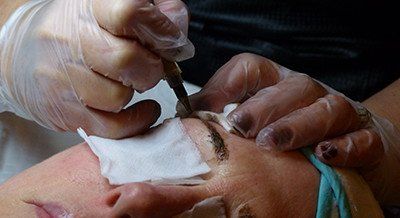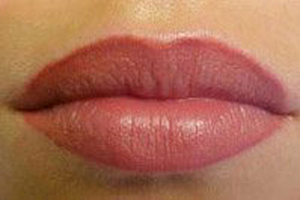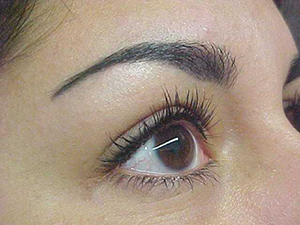Permanent Makeup…Just the facts, Jack!
- By J.Maxine MacGwyre, LMA, Nutrition Specialist
- •
- 11 Apr, 2019
- •

Permanent Makeup – What is it?
Permanent cosmetic makeup is most accurately described as cosmetic tattooing. The specialized techniques used for permanent cosmetics are also known as “micropigmentation”, “micropigment implantation” or “dermagraphics”. Regardless of what you call the technique, the process results in colored pigment being deposited into the upper layer of the dermis.How are Permanent Cosmetic Procedures Performed?
Permanent cosmetics procedures are performed using various devices, including the traditional tattoo coil machines, a pen or hand device. The process should always include a consultation, the application of pigment, and often requires at least one or more follow up visits for evaluating the healed design work and color of the pigment to determine if touch ups are needed.Benefits of Permanent Makeup
Permanent Cosmetics can provide a subtle, natural or dramatic enhancement to your appearance and is especially valuable to people who can’t wear traditional cosmetics due to allergies and skin sensitivities; active people who want to look their best while playing sports without the concern of “sweating it off” or reapplying. Permanent Cosmetics also benefits the vision challenged who have difficulty applying their cosmetics; and those with dexterity related conditions, such as arthritis, Parkinson’s disease, multiple sclerosis and stroke survivors. And of course, with our crazy busy lives its one less thing to think about!
Typical areas for enhancement include eyebrows, eyeliner, scar camouflage, beauty marks, hair imitation, lash enhancement and areola repigmentation. Some of these procedures use more advanced techniques (para-medical techniques) and thus require an experienced technician with advanced training.
Are Permanent Cosmetics Really Permanent?

How Much does Permanent Makeup Cost?
The average cost per procedure varies but usually averages between $400-$800. Advanced work, para-medical procedures, may be charged at $150 to $250 per hour. As with any important health related decision, the cost of the procedure should not be the most important issue when consulting a potential permanent cosmetic professional. The key factor should be the training and skill of the person performing the procedure.
How Long Does Each Procedure Take?

Is It Painful?
Most people experience some discomfort which varies based on an individual’s pain threshold. To help manage any discomfort topical numbing crème is applied before the treatment begins.
Is It Safe?
If proper sterilization and disinfection guidelines are followed, permanent cosmetics are completely safe.What If I Don’t Like It?
Although the procedure is considered permanent, these procedures do have flexibility in changing color and shape to some extent, depending on the expertise of your technician. Colors will appear darker immediately following the procedure but will soften and lighten during the healing process. The healing time is different for each individual and type of procedure. Give yourself some time to adjust to your new look following your procedure.
Which Technician Should I Choose?
Careful selection should include consideration of training, experience, compliance with state and local laws, and it goes without saying…the technician’s before and after photograph portfolio. It is important to remember that the shape and proper placement of the procedure is as important as the right color. Professionals study color theory and skin undertones which results in accuracy. It is of utmost importance to select a practitioner who you can communicate well with…your results depend on that!
Are There Any Side Effects During or After the Procedure?

Do The Pigments Pose Allergy Problems?

What’s a Touch-Up and Do I Need One?
Often the tattooed color is not perfect after the initial procedure heals. Permanent cosmetic procedures are a process and at least one follow-up to the initial procedure should be scheduled, typically a month after the initial procedure, with lips however, it is recommended to wait six weeks before scheduling a touch-up.
Can I Still Have an MRI Scan?
Numerous studies have shown that even for people who have large body tattoos there is little to no potential for irritation resulting from an MRI. However, it is prudent to advise your MRI technician that you have permanent cosmetics.
SOURCE: THE SOCIETY OF PERMANENT COSMETIC PROFESSIONALS




